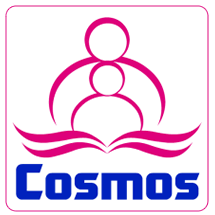THE LIBRARY IN A POST-PANDEMIC WORLD: REPOSITIONING LIBRARY PROGRAMS AND SERVICES AMONG HIGHER EDUCATIONAL INSTITUTIONS (HEIS)
DOI:
https://doi.org/10.53555/eijhss.v9i1.196Abstract
Libraries are changing. Library leaders envision the library of the future as a hybrid institution that seamlessly integrates both digital and physical book collections. This reflects a shift towards a more user-centered approach, where libraries cater to the evolving preferences of patrons who value access to information in both traditional and digital formats. The study is aimed at describing the various strategies of academic libraries in repositioning their programs and services in a post-pandemic environment. The study utilized the qualitative research design particularly thematic analysis by Clarke and Braun. In qualitative research, thematic analysis (Maguire & Delahunt, 2017) is a method for identifying and analyzing recurring patterns or themes within data. In this particularly study, thematic analysis was used to describe the strategies and challenges that academic libraries experience in repositioning their programs and services in the midst of a pandemic with the view of suggesting measures on how to redesign library programs and services into a post-pandemic environment. Including all Central Luzon Digital Library Consortium members in the study minimizes margin of error, enabling population characteristic inferences. Data gathered have been analyzed using the thematic analysis developed by Braun and Clarke (2006) which involves six phases.
References
American Library Association. (2024). Libraries: Definition & Mission. https://www.ala.org/aboutala/
American Library Association. (2024). Libraries: Definition & Mission. https://www.ala.org/ ala/pio/ mediarelationsa/factsheets/aboutala.htm
Association of College & Research Libraries. (2023). Sustainability in Libraries.
Aristovnik, A., Keržič, D., Ravšelj, D., Tomaževiˇc, M., & Umek, L. (2020). Impact of the COVID-19 Pandemic on Life of Higher Education Students: A Global Survey. Studies in Higher Education, 45(8), 1707-1724. https://pubmed.ncbi.nlm.nih.gov/34869802/
Ezeala, I. O. (2018). Information Services and National Development: The Role of Libraries. Library Philosophy and Practice (e-journal), 1(2), 1-9. https://digitalcommons.unl.edu/libphilprac/
Lyon Declaration on Access to Information and Development. (2019, June 14). UNESCO. https://www.lyondeclaration.org/content/pages/lyon-declaration.pdf
Maguire, M. & Delahunt, B. (2017). Doing a thematic analysis: a practical, step-by-step guide for learning and teaching scholars. Dundalk Institute of Technology, 3 (Autumn 2017): 3351-33514.
Rubin, R. (2016). Foundations of Library and Information Science. Libraries Unlimited.
UNESCO. (2023). Libraries.
United Nations. (2023). Sustainable Development Goals. https://sdgs.un.org/goals
Yong-Seong, S. (2009). Designing library services based on user needs: new opportunities to re-position the library. World Library and Information Congress: 75th IFLA General Conference and Council.
World Bank. (2023). The World Bank Education. https://www.worldbank.org/en/topic/education







